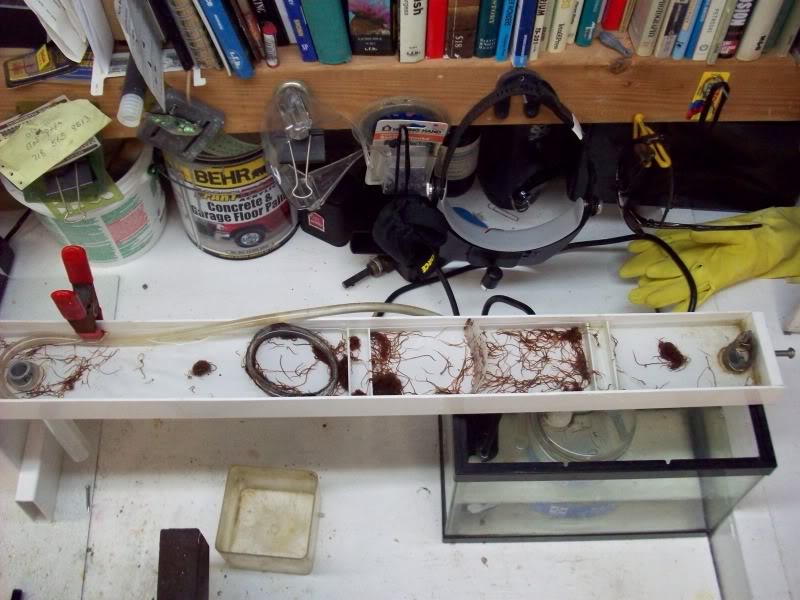First of all, fish are not like us. A cold blooded animal is not only different from it's internal temperature, but almost all of it's systems are different from mammals. We as warm blooded creatures can and do eat almost anything organic that we can swallow and most of it will keep us alive. A fish can not for a couple of reasons. Their internal temperature make it very hard to digest solid fats. We on the other hand have almost the same internal temperature as cows so their fat can easily melt in our intestines and we can absorb it. If a fish eats cow fat such as beef heart, much of it remains solid in their intestines and is eliminated.
Fish have no solid fat. I have filleted thousands of fish as I eat them almost every day and you never see solid fat in fish. But a fish is loaded with oil.
Some fish such as menhaden or as we in NY call them, bunker, are harvested just for their oil. Fish such as makeral or bluefish are loaded with oil and a shark can have 20% of it's weight in pure oil.
A fish uses this oil for a couple of things. One is buoyancy. Oil is lighter than water and it offers fish some buoyancy. A fish such as a shark has no swim bladder and contains such a large amount of oil for this reason. Sharks still sink when they are not swimming but they would sink a lot faster without oil.
True bony fish such as we keep in our tanks also have quite a large amount of oil but they also have a swim bladder so they can maintain equilibrium at any depth. The oil supplements the swim bladder but it is not adjustable to the fish as the swim bladder is.
Oil is not just for buoyancy, the swim bladder which is filled with gas could have evolved to keep a fish buoyant but then why do fish have such a large portion of oil?
I feel that oil is crucial to a fish health and also why fish in captivity are so prone to diseases. Diseases we never see in fish in the sea.
This oil can most likely be produced by the fish but I am sure they are much healthier if they eat a diet that is rich in oil. I have come to this conclusion because from many years SCUBA diving I have learned that the thing fish in the sea eat more than anything else is fish. Whole fish.
As I said, whole fish are about 20% oil. And baby fish have an even higher percentage of oil due to their yoke sack. Over 99% of baby fish are eaten in their first days of life, that is a lot of oil.
(Notice the school of fry to the left of the nurse shark. That is what most fish on a reef eat)
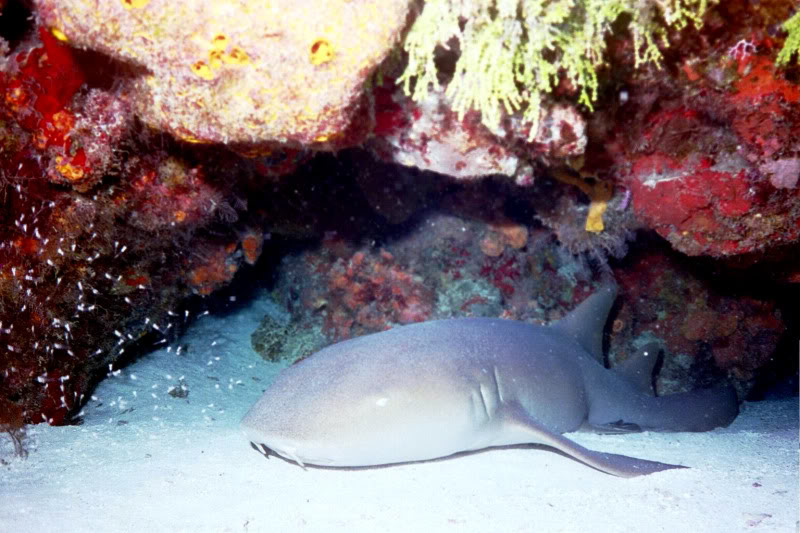
A diet like that would kill us, but we are not fish.
I also know from experience that an oily diet keeps a fish in breeding condition, this is the condition they are always in in the sea and almost never in in a tank.
(you can tell a healthy fish by it's vibrant colors, especially if it is a normally drab colored fish such as this gobi)
For some reason, fish in breeding condition hardly, if ever get sick. I know this from experience. My fish usually live long enough to die of old age or an accident. I also don't have a quarantine or hospital tank as I have not needed either for over 20 years.
The first saltwater fish available for sale in the US were blue devils. I started with seven of these fish and although they lived quite nicely, they just did not have the vibrant colors of the wild fish I always saw in the sea. They also did not spawn, that is until I started feeding them worms every day. A few weeks on this diet and one of the blue devils changed. His normally clear fins turned a brilliant blue like the rest of his body. He became a male and started to court the females. They produced eggs every few weeks for seven years.
(Male blue devil over his nest of eggs, Circa 1973)
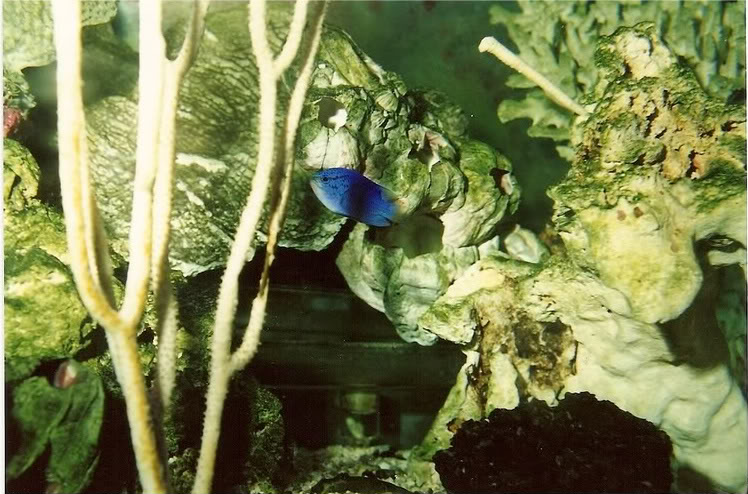
Many of us feed commercially prepared foods because it is readily available and easy to feed. I use it myself. But this food is almost always lacking in sufficient oil. The reason for this is that oil goes bad. Even if we freeze it. It also smells bad, is sticky and just nasty stuff.
Thats why they now sell it in capsules. As a kid my Mother used to make me take cod liver oil from a spoon. No other thing tastes as gross. But to a fish, it is like going to an ice cream store.
Oil can be offered a few ways. I feed my fish live blackworms every day because worms have a nice portion of oil in them and I found that I can keep my fish breeding if I let them eat a few worms every day. I also hatch brine shrimp every day for the smaller fish and corals. Baby brine a few hours old are also full of oil. I also feed pellets that I first soak in fish oil. I take fish oil myself every day but without the pellets.
Of course the best food would be small whole fish, but whole fish of the size we need are hard to come by. I have spoken to a commercial fish food manufacturer about this but they never got back to me.
This of course is all my theory and I have nothing scientific to back it up except for my 50+ years of fish keeping and the 200 or so hours I have spent underwater with these creatures.
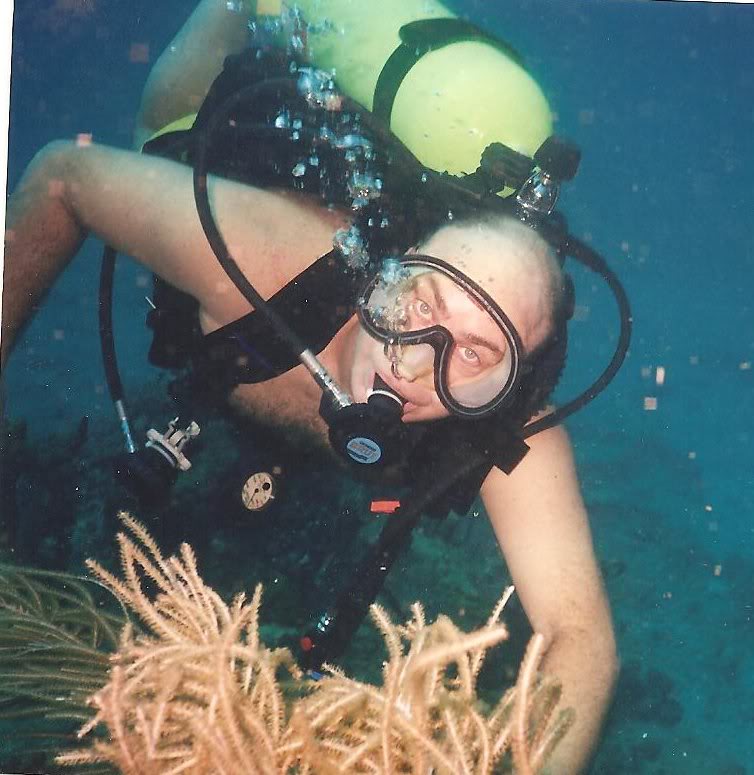
Fish have no solid fat. I have filleted thousands of fish as I eat them almost every day and you never see solid fat in fish. But a fish is loaded with oil.
Some fish such as menhaden or as we in NY call them, bunker, are harvested just for their oil. Fish such as makeral or bluefish are loaded with oil and a shark can have 20% of it's weight in pure oil.
A fish uses this oil for a couple of things. One is buoyancy. Oil is lighter than water and it offers fish some buoyancy. A fish such as a shark has no swim bladder and contains such a large amount of oil for this reason. Sharks still sink when they are not swimming but they would sink a lot faster without oil.
True bony fish such as we keep in our tanks also have quite a large amount of oil but they also have a swim bladder so they can maintain equilibrium at any depth. The oil supplements the swim bladder but it is not adjustable to the fish as the swim bladder is.
Oil is not just for buoyancy, the swim bladder which is filled with gas could have evolved to keep a fish buoyant but then why do fish have such a large portion of oil?
I feel that oil is crucial to a fish health and also why fish in captivity are so prone to diseases. Diseases we never see in fish in the sea.
This oil can most likely be produced by the fish but I am sure they are much healthier if they eat a diet that is rich in oil. I have come to this conclusion because from many years SCUBA diving I have learned that the thing fish in the sea eat more than anything else is fish. Whole fish.
As I said, whole fish are about 20% oil. And baby fish have an even higher percentage of oil due to their yoke sack. Over 99% of baby fish are eaten in their first days of life, that is a lot of oil.
(Notice the school of fry to the left of the nurse shark. That is what most fish on a reef eat)

A diet like that would kill us, but we are not fish.
I also know from experience that an oily diet keeps a fish in breeding condition, this is the condition they are always in in the sea and almost never in in a tank.
(you can tell a healthy fish by it's vibrant colors, especially if it is a normally drab colored fish such as this gobi)

For some reason, fish in breeding condition hardly, if ever get sick. I know this from experience. My fish usually live long enough to die of old age or an accident. I also don't have a quarantine or hospital tank as I have not needed either for over 20 years.
The first saltwater fish available for sale in the US were blue devils. I started with seven of these fish and although they lived quite nicely, they just did not have the vibrant colors of the wild fish I always saw in the sea. They also did not spawn, that is until I started feeding them worms every day. A few weeks on this diet and one of the blue devils changed. His normally clear fins turned a brilliant blue like the rest of his body. He became a male and started to court the females. They produced eggs every few weeks for seven years.
(Male blue devil over his nest of eggs, Circa 1973)

Many of us feed commercially prepared foods because it is readily available and easy to feed. I use it myself. But this food is almost always lacking in sufficient oil. The reason for this is that oil goes bad. Even if we freeze it. It also smells bad, is sticky and just nasty stuff.
Thats why they now sell it in capsules. As a kid my Mother used to make me take cod liver oil from a spoon. No other thing tastes as gross. But to a fish, it is like going to an ice cream store.
Oil can be offered a few ways. I feed my fish live blackworms every day because worms have a nice portion of oil in them and I found that I can keep my fish breeding if I let them eat a few worms every day. I also hatch brine shrimp every day for the smaller fish and corals. Baby brine a few hours old are also full of oil. I also feed pellets that I first soak in fish oil. I take fish oil myself every day but without the pellets.
Of course the best food would be small whole fish, but whole fish of the size we need are hard to come by. I have spoken to a commercial fish food manufacturer about this but they never got back to me.
This of course is all my theory and I have nothing scientific to back it up except for my 50+ years of fish keeping and the 200 or so hours I have spent underwater with these creatures.

Last edited by a moderator:






